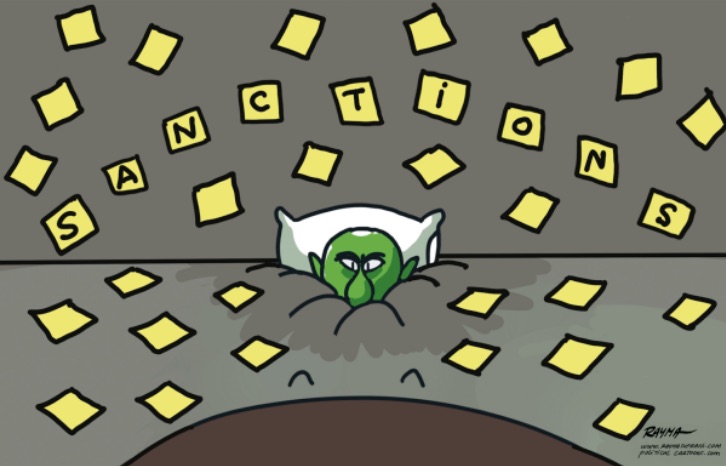Annoy Russia and Conserve
Reducing Gasoline Consumption Is the Needed Wartime Strategy

German Vice-Chancellor Robert Habeck has strongly urged his country to reduce car usage, observing that “it’s easy on the wallet and annoys Putin.”
A lot of strategies are being discussed to bring down gas prices and help Ukraine, but in our nation, conservation is not one of them. Many leaders appear afraid to use the “c” word.
Growing up, I remember hearing my parents repeatedly mention how patriotic it was to conserve resources, especially gasoline, during World War II. On several occasions, my father, who was a Goldwater Republican, proudly commented that reducing gas usage during the war was critically important to our country and the future of democracy.
As a result of Russia’s horrifical and brutal invasion of Ukraine, the nationwide average price of gasoline, as we well know, is over $4 per gallon, with averages in California exceeding $6. Many options are being explored or implemented, including drilling for more oil, eliminating gas taxes, releasing 1 million barrels a day from the nation’s strategic petroleum reserves and providing rebates to car owners. These options have very high costs associated with them, including exacerbating climate change.
There is a much better and more efficient alternative. The key to lowering gas prices quickly and efficiently is to decrease the demand for gasoline. The most basic economic principle of all is the law of supply and demand. When supplies decrease for whatever reason (including war), prices will go up unless demand also decreases.
Just two years ago, we saw that the cost reduction impacts of reducing demand for gasoline are quick and substantial. The average price of gasoline in the first week of February 2020 was $2.455 per gallon. When COVID-19 hit, the demand for gasoline in April 2020 fell by 37 percent. As a result, during the first week in May, the average price of gasoline dropped to $1.789. That’s a hefty price decline of more than 66 cents, or 27 percent in three months.
There are many local programs, such as those promoted by Community Environmental Council, to help us reduce our gasoline usage. As Putin is indiscriminately bombing hospitals, residential areas and shelters, resulting in the deplorable killing of innocent civilians in Ukraine, it seems as if using less gasoline is the very least we can do.
It matters how much gasoline our nation uses. With only a little more than 4 percent of the world’s population, the United States, consumes over 20.3 percent of the world’s total petroleum, by far the most of any country.
How does our gasoline consumption compare to other countries? We are, unfortunately, number one. The United States guzzles over 8,680,000 barrels per day of gasoline. In second, China, with more than 18 percent of the world’s population, only consumes a little more than 1,900,000 barrels; while Russia, in fourth, consumes less than 820,000 barrels per day. We have the technology and the ability to do much better.
The false solution of drilling for more oil to lower gasoline prices, especially in untouched areas, deserves to be rejected. Developing the Arctic National Wildlife Refuge, for example, would take at least 10 years, as analyzed by the U.S. Energy Information Administration. That is certainly not helpful now. Drilling in other ecologically and culturally irreplaceable areas, such as offshore California, is also not the answer.
We, individually and collectively, have the power to reduce gasoline prices when we reduce consumption. We can walk more, buy or lease an electric vehicle, bicycle, take mass transit, carpool, refrain from driving over the speed limit, properly inflate our tires, combine errands, work remotely, connect electronically and encourage others to do the same.
Also, it is time for our political leaders — of both parties — to say it is our patriotic duty to use less gasoline during this gut-wrenching humanitarian and geo-political crisis in Ukraine. To help Americans who are struggling with across-the-board higher prices, including increased costs for food and rent, it makes more sense, and is much more equitable, to fully reinstate the Child Tax Credit.
As Rosie the Riveter, with flexed biceps, proclaimed proudly during the last heavily militarized invasion in Europe, “We Can Do It!”
Deborah Williams, J.D., is a lecturer with the UCSB Environmental Studies Department.



